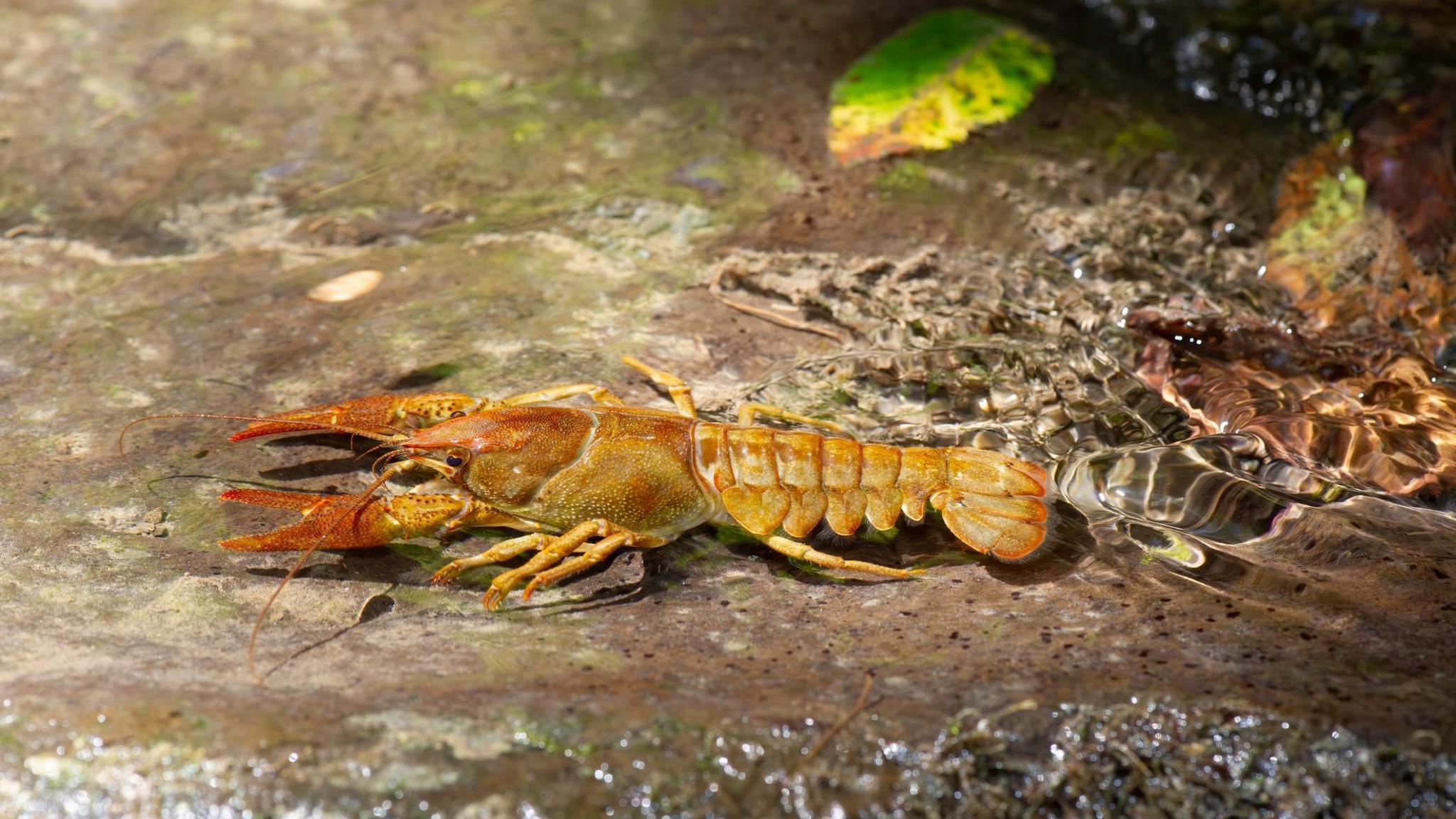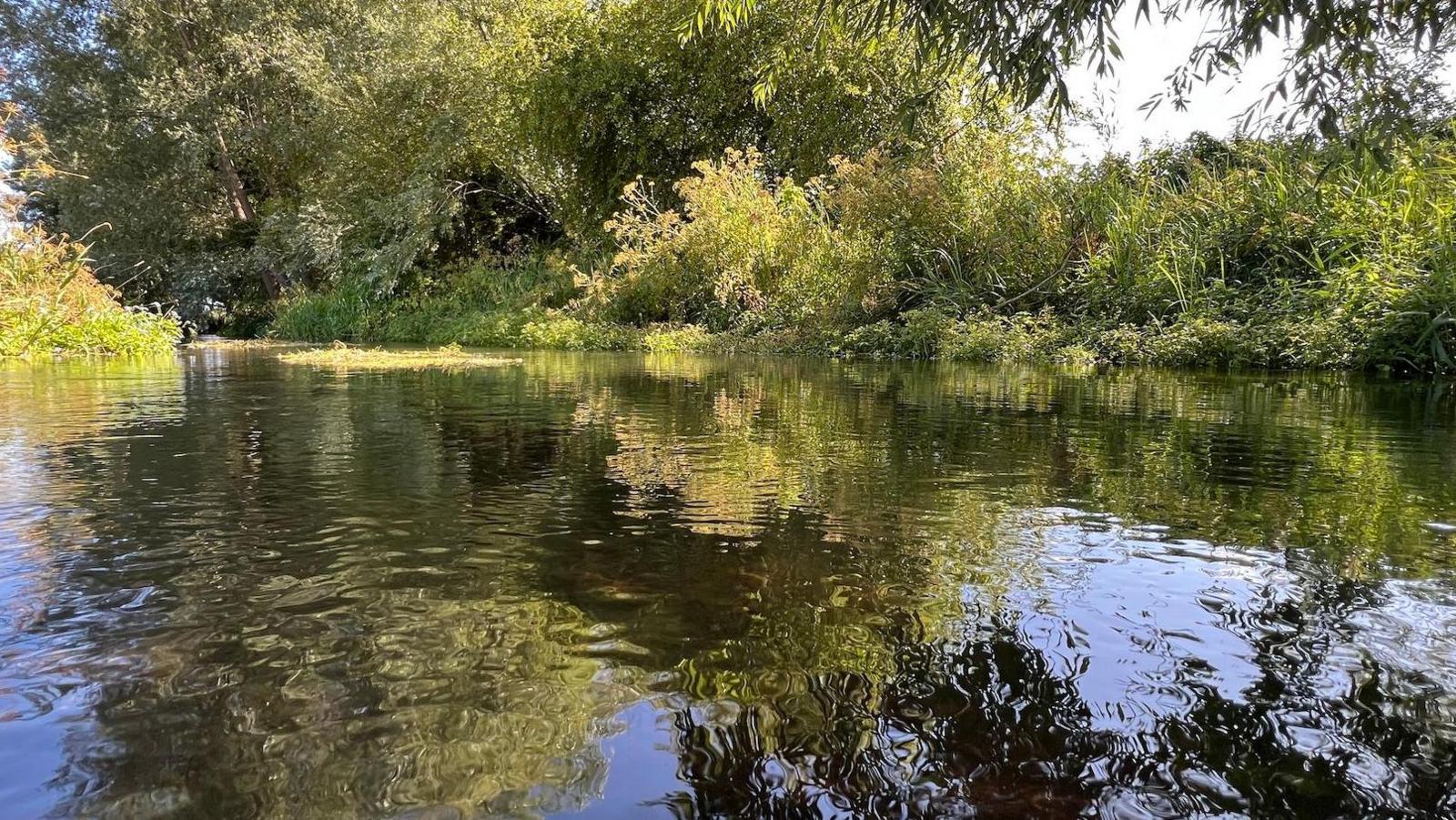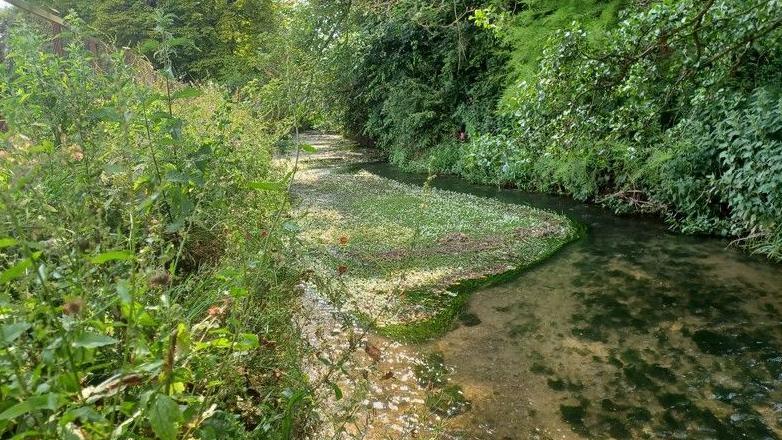Warming chalk streams 'perfect environmental storm'

Chalk streams are home to many species, including the endangered white clawed crayfish
- Published
Rising temperatures in chalk streams are damaging them and suffocating wildlife, conservations have said.
Chalk streams are very rare and ecologically important habitats, mainly found in southern England, and home to species including the endangered white clawed crayfish.
But if the water is too warm, the oxygen level is lowered and the wildlife die, according to the Berkshire, Buckinghamshire and Oxford Wildlife Trust (BBOWT) .
A spokesperson for the Environment Agency (EA) said it had increased environmental monitoring in response to the weather conditions.
It also asked the public to report concerning sightings such as fish in distress.

Peter Devery, from the Angling Trust, said the warm weather was leading to dangerously low oxygen levels in the river
There are only 200 known chalk streams in the world, 85% of which are in England.
They are generally a constant temperature, staying between about 10 and 12C, according to the Angling Trust's Peter Devery.
But when he took the temperature of the River Pang in Berkshire he found it to be over 18C.
"That's when the damage starts to occur," he said.
"It lowers that whole oxygen level... and when it dries up it completely kills the life in it."
Julian Cooper from BBOWT said high temperatures had knock-on ecological impacts.
"Warming water, less oxygen, less rainfall, more extraction, it's sort of the perfect environmental storm," he said.
He said people had a "massive responsibility" to conserve water, and also called for better agricultural policy to support conservation along the rivers.

The River Pang is one of around 200 chalk streams globally
The EA spokesperson said the Thames area had received only 50% of the rainfall it expected over the last three months, which was putting the environment under "increasing stress".
"We're increasing our environmental monitoring and preparing for potential impacts like pollution incidents and wildlife distress as water levels fall," they added.
On Monday, Thames Water announced a hosepipe ban for parts of its patch as a result of low rainfall.
The Department for Environment, Food and Rural Affairs (Defra) said the government had secured £2b of water company investment to "restore our iconic chalk streams".
Get in touch
Do you have a story BBC Berkshire should cover?
You can follow BBC Berkshire on Facebook, external, X (Twitter), external, or Instagram, external.
Related topics
- Published4 July
